The Milky Way (1936) Online
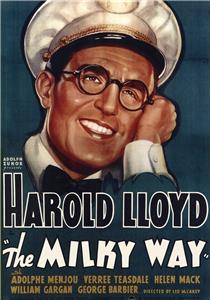
Timid milkman, Burleigh Sullivan (Lloyd), somehow knocks out a boxing champ in a brawl. The fighter's manager decides to build up the milkman's reputation in a series of fixed fights and then have the champ beat him to regain his title.
| Complete credited cast: | |||
| Harold Lloyd | - | Burleigh Sullivan | |
| Adolphe Menjou | - | Gabby Sloan | |
| Verree Teasdale | - | Ann Westley | |
| Helen Mack | - | Mae Sullivan | |
| William Gargan | - | Speed McFarland | |
| George Barbier | - | Wilbur Austin | |
| Dorothy Wilson | - | Polly Pringle | |
| Lionel Stander | - | Spider Schultz | |
| Charles Lane | - | Willard | |
| Marjorie Gateson | - | Mrs. E. Winthrop LeMoyne |
When a suitable white horse for Burheigh could not be found, make-up artists were called upon to bleach a dark-colored horse blonde.
Film debut of Anthony Quinn.
When producer Samuel Goldwyn bought the rights to the property in the mid-'40s for his remake, The Kid from Brooklyn (1946) (with Danny Kaye in the lead role), he also bought the original negative and almost all existing prints, and destroyed them. After that time the copyright was not renewed, and the title apparently fell into public domain, and, as a result, numerous VHS and DVD dealers, not having access to original material, included it in their inventories, offering vastly inferior copies. Harold Lloyd, however, had preserved his own original nitrate release print, which became the source for the new digital video transfer used by TCM and subsequent DVD releases.
During filming, the cast and crew drank the milk which was used in the film. Because the milk wasn't pasteurized, many who drank it became very ill. Director Leo McCarey became so sick that when his father died during filming, he missed the funeral due to his illness. He wanted his next film to be a tribute to his father, that film would come to fruition as Make Way for Tomorrow (1937).
The original play opened at the Cort Theatre in New York on 8 May 1934 and closed in July 1934 after 63 performances. Burleigh Sullivan was played by Hugh O'Connell and Speed McFarland by Brian Donlevy. Another version opened in 1943 but lasted only 16 performances.
When director Leo McCarey was in the hospital, Norman Z. McLeod directed some of the scenes.
The movie was originally planned as a vehicle for Jack Oakie, Gertrude Michael and Edward Everett Horton. When it was decided that it would be a Harold Lloyd picture instead, Horton was replaced by Adolphe Menjou. Instead of Helen Mack, originally Sally Blane was cast. Due to illness, Ida Lupino was replaced by Dorothy Wilson.
"Spider" Schultz (Lionel Stander) claims the man who knocked out him and the champ was "bigger than Canary." Schultz, who often spouts malapropisms, is referring to Primo Carnera, who, at 6' 9", was the biggest boxer of his day. Stander played "Spider" Schultz in this film, and its remake, The Kid from Brooklyn (1946).
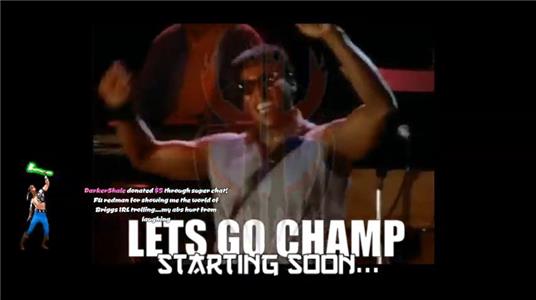
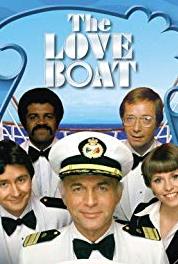
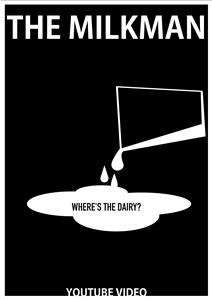

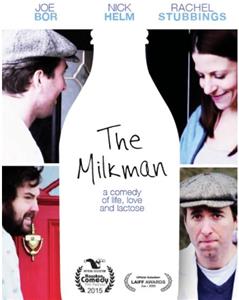
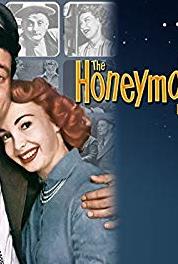
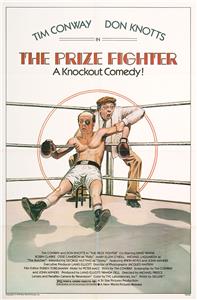
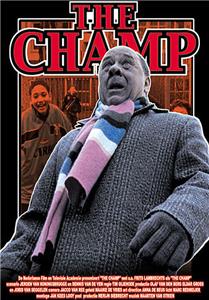
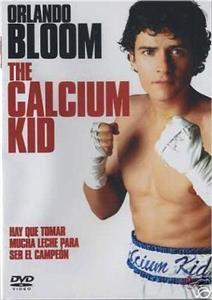
User reviews